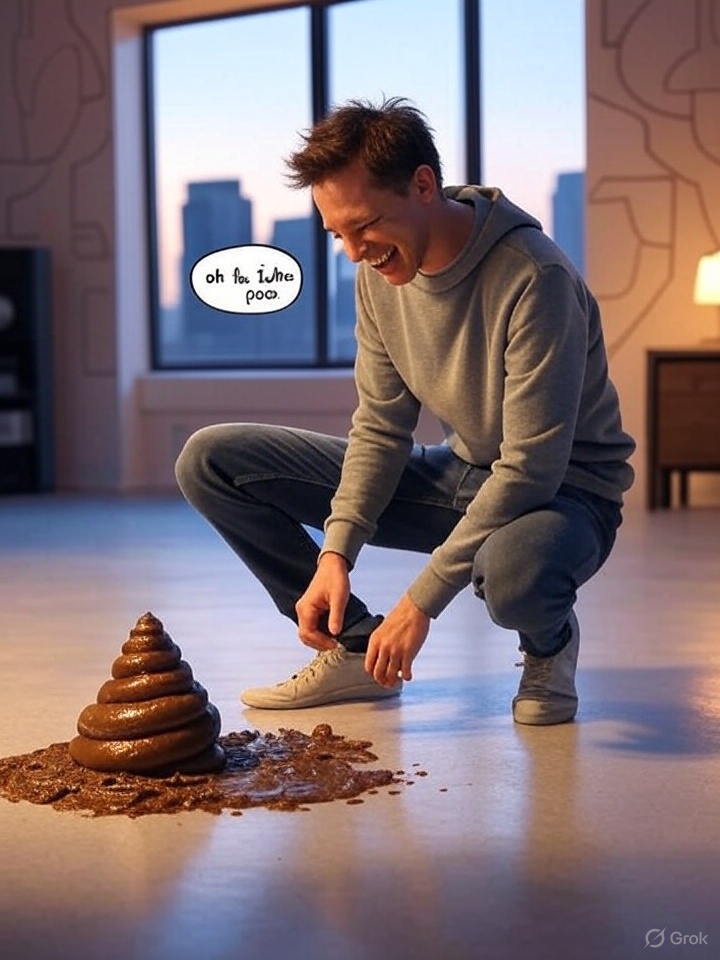The Bartender asks: "Will you all be having beers?"
The first logicians says: "I don't know."
The second logicians says: "I don't know."
The third logicians says: "Yes."
Joke Poo: Three Shy Writers Walk into a Coffee Shop
Three introverted, aspiring writers walk into a bustling coffee shop.
The Barista, beaming, asks: “Are you all going to order pumpkin spice lattes today?”
The first writer whispers: “I… I might.”
The second writer mumbles: “Possibly not.”
The third writer, after a long, agonizing pause, says: “Then I’ll have a black coffee.”
Alright, let’s break down this logician joke.
Joke Dissection:
- Setup: Three logicians walk into a bar (classic setup for a joke involving specific professions or groups).
- Punchline Foundation: The bartender poses a question seemingly requiring a straightforward “yes” or “no.”
- Humor Derivation: The humor comes from the logicians’ meticulous application of logic and the implication that they cannot answer without certainty, specifically that it hinges on the others’ choices.
- Logic in Action: The first two logicians’ “I don’t know” is key. The first means “I don’t know if everyone will order beer, including myself.” The second means the same thing. The third one knows that everyone wants a beer because he’s just heard two logicians state they don’t know if the group all wants one, implying that they do.
Key Elements:
- Logicians: Emphasis on their profession as logic experts.
- Uncertainty/Knowledge: The core of the humor stems from the logicians’ inability to immediately confirm a group preference.
- Deduction: The audience needs to understand that “I don’t know” isn’t just indecisiveness, but a carefully considered statement.
- Bar/Beer: The mundane setting contrasts with the intellectual exchange.
Comedic Enrichment & New Humor Creation:
Approach 1: “Did You Know?” Enhancement
Did you know that formal logic actually distinguishes between different types of “yes”? In this joke, the third logician’s “yes” could represent affirmation (yes, I want a beer) or confirmation (yes, it is true that everyone wants a beer). If the bartender was really pedantic, he’d need to specify which “yes” he required, and the joke would never end! In fact, Zeno might argue that the logicians are actually closer to getting a beer than they were when they walked in, because each “I don’t know” halves the distance to a beer-ordering certainty. Cheers to infinite regression!
Approach 2: New Joke
A quantum physicist walks into a bar.
The bartender asks, “Will you be having a drink?”
The physicist replies, “I’m 50% sure I will, and 50% sure I won’t. However, observing my answer will force me into a definite state of either inebriation or sobriety. Either way, there is a probability I will wake up next Tuesday in a parallel universe with a hangover the size of a small dwarf planet.”
The bartender pours him a shot. “On the house. Sometimes, simpler is better.”
Approach 3: Witty Observation
Logicians are the reason bartenders have trust issues.
Explanation of Choices:
- “Did You Know?” Enhancement: Uses the real complexities of logic and philosophical concepts to highlight the absurdity of applying such strictness to a casual situation. The Zeno twist adds another layer of pedantry.
- New Joke: Retains the core setup of a professional encountering a simple question but substitutes a quantum physicist for a logician. The humor now comes from the weirdness of quantum mechanics and the implication that even simple decisions can have bizarre consequences.
- Witty Observation: A simple, punchy line that captures the core conflict of the original joke.
These are just a few examples. You could riff on the setting, the personalities of the logicians, or even the specifics of logical deduction to create further humor. The key is to understand what makes the original joke funny and then build on those elements.


